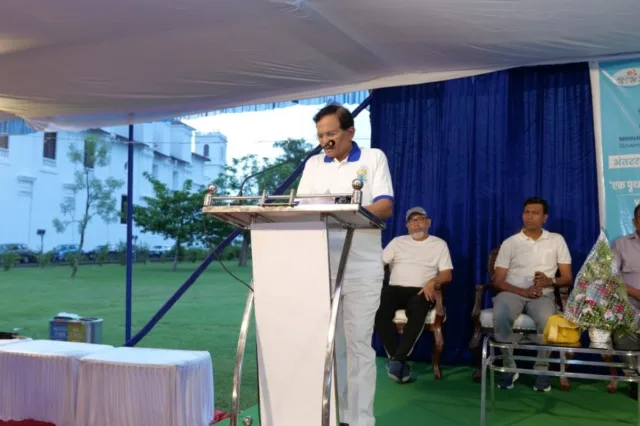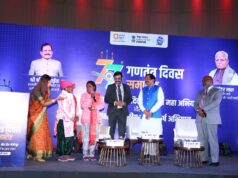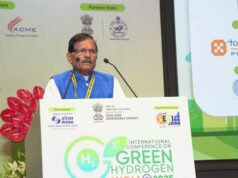“Yoga, as we know, is far more than physical exercise. It is a spiritual and philosophical journey. In these times of uncertainty and rapid change, yoga offers us a way to reconnect with ourselves, to find calm amidst chaos, and to nurture compassion for ourselves and for others”, said Union Minister of State for Power and New & Renewable Energy, Shripad Naik.
He was addressing a large gathering of Yoga enthusiasts from different walks of life at the 11th International Day of Yoga event held at Lawns of Churches and Convent of Old Goa, one of the 189 iconic tourist locations chosen across India for this grand celebration.
The event was jointly organised by AYUSH Ministry, Ministry of Tourism, Government of India, and Archeological Survey of India.
“The theme for this year’s International Yoga Day — “Yoga for One Earth, One Health” — reflects the global aspiration for unity, peace, and inner strength in the face of today’s challenges—be it stress, poor health, or the fast-paced nature of modern life”, Naik said.
“I am privileged that the first International Yoga Day was celebrated when I was the AYUSH Minister. I express my deepest gratitude to Prime Minister Narendra Modi for giving me an opportunity to be part of this historic moment,” Naik said.
The minister commended all the yoga teachers, organisations, volunteers, and practitioners who have worked tirelessly to spread awareness and make yoga accessible to all sections of society.
“Let us pledge today not only to practice yoga but to live yoga. Let us use this transformative discipline to build a healthier society, a more peaceful world, and a future that is rooted in awareness and well-being,” Naik appealed to the people of Goa.
Since its inception in 2015, following the proposal by India at the United Nations, Yoga Day has become a global phenomenon—celebrated in over 190 countries. It is heartening to see that what began as an ancient Indian practice thousands of years ago has now become a universal language of well-being.
The idea for International Yoga Day was first proposed by Prime Minister Narendra Modi during his address to the United Nations General Assembly (UNGA) on September 27, 2014.
The resolution was co-sponsored by 177 countries—a record number—demonstrating global support for the initiative. June 21 was chosen because it is the Summer Solstice, the longest day of the year in the Northern Hemisphere, which holds significance in many cultures and yogic traditions.






